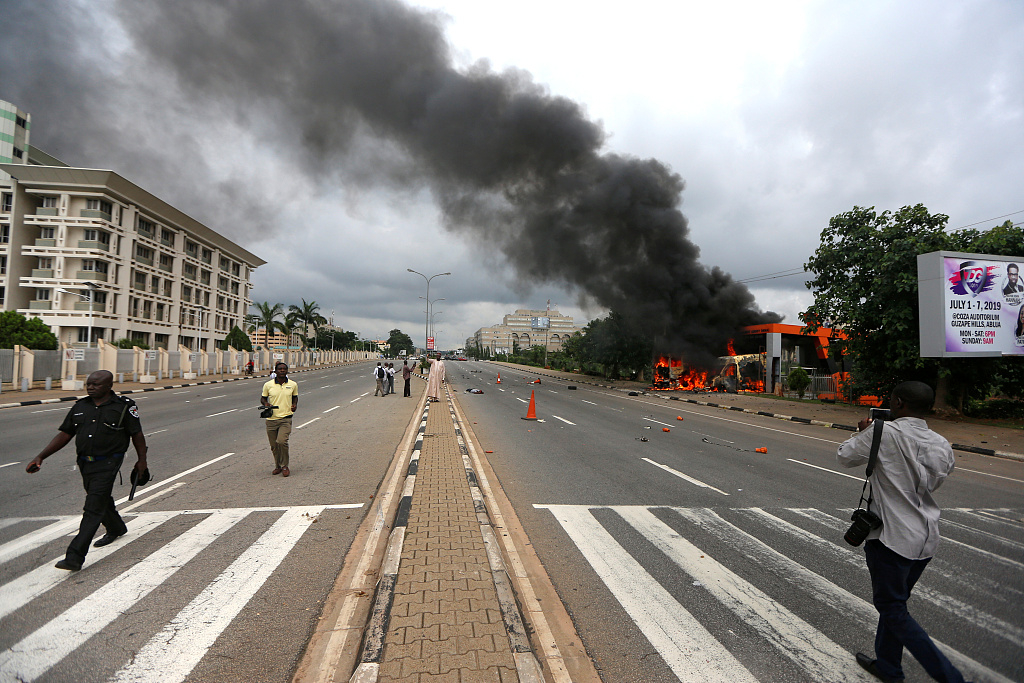
A Nigerian judge ruled on Monday that the detained leader of a banned Nigerian Shi'ite Muslim group could seek medical treatment abroad, after a series of protests calling for his release turned violent last month.
Nigeria banned the Islamic Movement in Nigeria (IMN) in July after a week of protests in which the group said at least 20 of its members were killed in police crackdowns. Police gave no death toll.
The group's leader, Ibrahim Zakzaky, has been held since 2015 when government forces killed around 350 people in a storming of its compound and a nearby mosque. He has not been released despite a court order to that effect, and the IMN said his detention is illegal.
The judge in a court in the northwestern city of Kaduna granted Zakzaky and his wife leave to seek medical treatment in India under the supervision of state officials.

A poster calling for the release of Ibrahim Zakzaky in the capital city of Abuja, Nigeria. /Reuters Photo
Zakzaky's lawyers have said that while in detention, Zakzaky lost an eye to advanced glaucoma and risks losing the other, while shrapnel lodged in his body since the 2015 storming of the IMN compound was causing lead poisoning.
The government says IMN incites violence, and a court has given the authorities permission to label it a terrorist organization. IMN denies it is violent, and says Zakzaky should be released in line with a December 2016 court order.

The Shi'ite protesters clash with the police, setting an ambulance and a fire engine on fire at the Federal Secretariat in Abuja, Nigeria, July 22, 2019. /VCG Photo
IMN is the largest Shi'ite organization in a country where around half of the population is Muslim, overwhelmingly Sunni.
Nigeria considers some Islamist movements to be a security threat after a decade combating the insurgency by Sunni Muslim militant group Boko Haram in which 30,000 people have been killed. The death of Boko Haram's leader in custody was one of the events that set that group on a violent path.

Copyright © 2018 CGTN. Beijing ICP prepared NO.16065310-3
Copyright © 2018 CGTN. Beijing ICP prepared NO.16065310-3